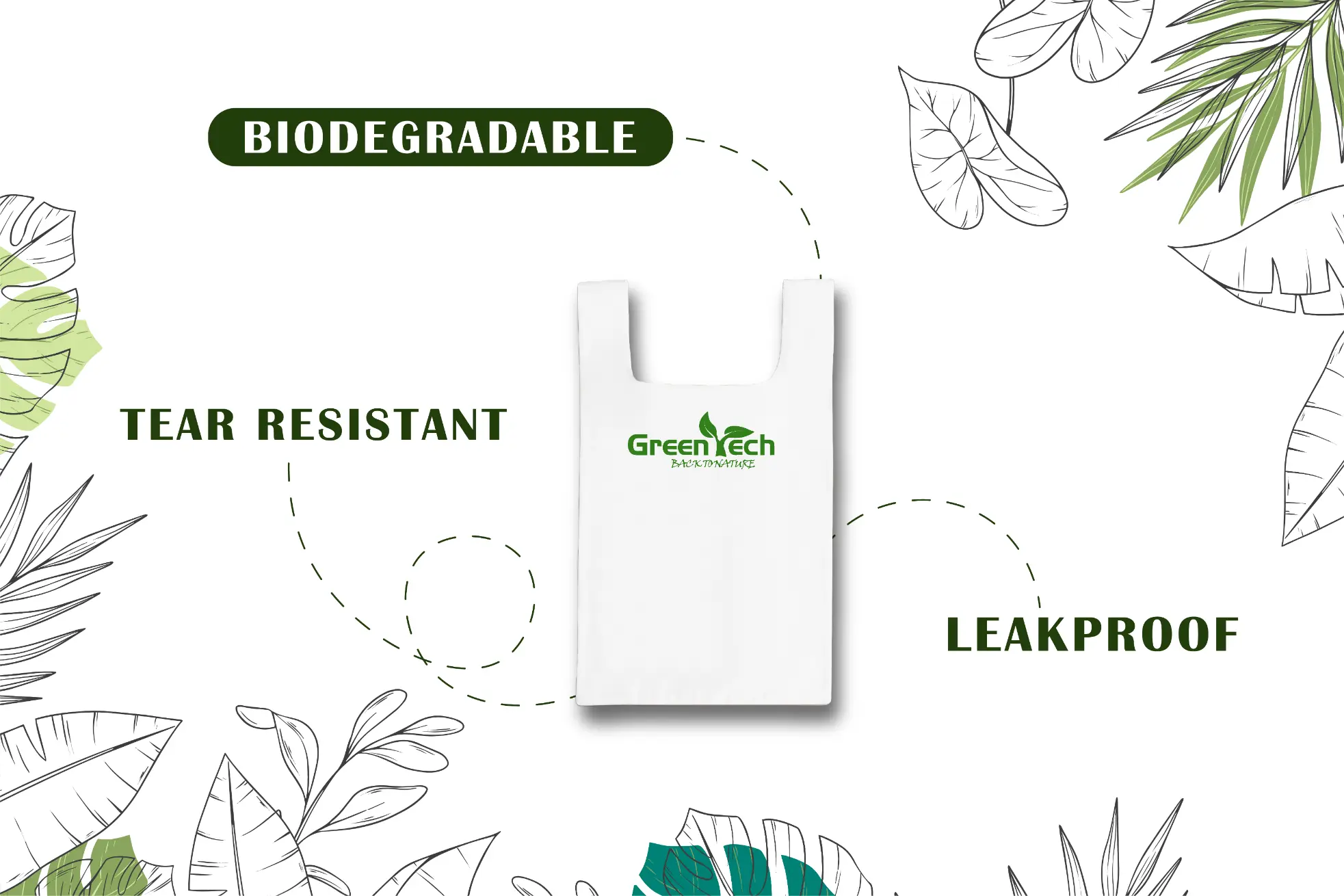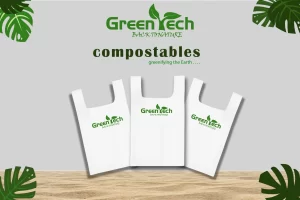Biodegradable and compostable bags are made from plant-based ingredients such as cornstarch and wheat, rather than petroleum. Our biodegradable garbage bags are mostly produced from Mater-Bi, a substance made up of corn starch that rots and produces polyester and vegetable oil. These bags contain no plastic and can biodegrade completely in 10-45 days under the correct conditions. They work best for collecting food waste to generate compost for your house or caterpillar farm since they contain trash, reduce odor, prevent fungus growth, and keep your bin clean.
It is critical to remember the ‘suitable conditions’ shown above for any hazardous or lost bags that must be disposed of. When the temperature must exceed 50 degrees Celsius, the bag must be exposed to UV radiation.
If you use perishable or lost bags to contain general waste or home waste, keep in mind that the bag will adapt to the characteristics of the waste it contains once everything has been transferred to the waste disposal location. The waste disposal and composting components decay heavily more slowly than they would in your home compost system, releasing methane, a gas that is significantly hotter than carbon dioxide.
Biodegradable waste bags have no negative impact on the marine environment.
Why Should You Use Biodegradable Garbage Bags Instead of Plastic?
Similar Uses: Both types of bags can be used for the same programs and provide the same functionality. Both can be used as waste bags and perform equally well.
No chemicals: There are no chemicals in these bags, so you don’t have to worry about your health when you use them.
Damage: These bags decay quickly in the ground. Due to soil-dwelling microorganisms, some of them rot in 12-24 months. When compared to normal plastic bags, which may need hundreds of years to break down, this is a significant improvement.
Oxo-biodegradable: Some bags can be packaged and are made of Oxo-biodegradable polymers. This means they’ll degrade faster.
No oil: There will be a gas shortage on Earth, which will harm the ecosystem. Conventional plastic bags are made of gasoline, but decomposing trash bags won’t hold any oil.
Environment Friendly Biodegradable Garbage Bags
- Perishable plastic may end up in waste dumps in large quantities, where it won’t biodegrade.
- Generally speaking, perishable plastic bags cannot be recycled with other plastic products.
- The ecology may be harmed by rotten bags.
When it comes to garbage, there aren’t many differences between words that are readily separated and decent:
- Bags for disposing of waste are checked; there are no bags containing decaying waste.
- Computerized waste bags can be fully built.
- Garbage bags with devices have legal disposal procedures.
What are the most environmentally friendly garbage bags?
While there are some possibilities for garbage bags that have been discarded there, they are not the best. However, if you look closely at the collection at sea, there is an increased chance that shopping bags, water bottles, and other single-use objects, rather than waste bags, will be readily driven around.
Biodegradable garbage bags also help reduce daily waste production. It can also be readily composted, as degraded plastic can be collected with yard debris or food scraps and delivered to compost sites. The compost discovered there could be used in agriculture. To put it another way, decomposing plastics provides an economical reply to to the problem of white pollution.





